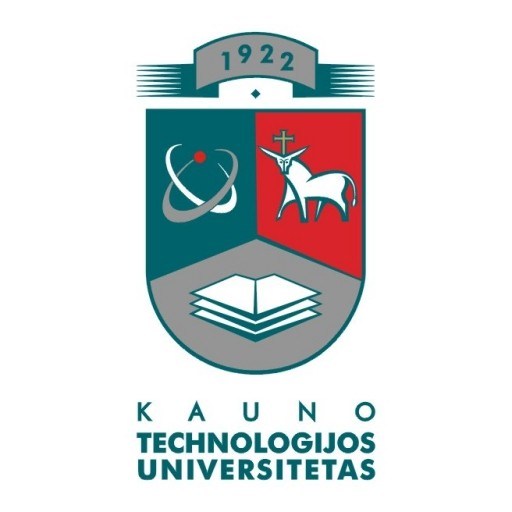Photos of university / #officialuom
Polymer Materials Science and Engineering at The University of Manchester offers a comprehensive program designed to provide students with in-depth knowledge and practical skills in the development, processing, and applications of polymeric materials. This innovative course combines the fundamentals of chemistry, physics, and engineering to equip graduates with the ability to design and optimize polymer materials for a wide range of industries, including aerospace, automotive, healthcare, packaging, and electronics. Throughout the program, students explore the structure-property relationships of polymers, learn advanced techniques in polymer synthesis, characterization, and processing, and understand the environmental and sustainability considerations associated with polymer use. The curriculum integrates both theoretical coursework and practical laboratory work, enabling students to gain hands-on experience with state-of-the-art equipment and techniques used in polymer research and manufacturing. Emphasis is placed on developing problem-solving skills and an understanding of the entire lifecycle of polymer products, from initial design to end-of-life disposal or recycling. Students have opportunities to engage in research projects, internships, and collaborations with industry partners, fostering real-world experience and professional connections. The program aims to prepare graduates for careers in research and development, product design, quality control, and technical consultancy within the polymer industry. It also offers pathways for further study or research at master's and doctoral levels. The University of Manchester's strong links with industry ensure that the curriculum is aligned with current technological advancements and market needs. By the end of the degree, students will have gained a solid foundation in polymer science, refined their technical and analytical skills, and developed an understanding of the commercial and environmental challenges facing the polymer sector today.
The Master of Science in Polymer Materials Science and Engineering at The University of Manchester provides students with an in-depth understanding of the fundamental principles and practical applications of polymers and polymer-based materials. The programme covers a broad range of topics, including the chemistry and physics of polymers, polymer synthesis, processing techniques, and the structure-property relationships that dictate material performance. Students gain valuable knowledge in areas such as polymer characterization, composite materials, nanomaterials, and advanced manufacturing methods, preparing them for careers in research, development, and industry.
Throughout the course, students engage in both theoretical coursework and practical laboratory sessions, developing essential skills in materials analysis, design, and problem-solving. The programme emphasizes innovation and sustainability, exploring modern challenges such as biodegradable polymers, environmentally friendly production processes, and the development of new materials for advanced applications like aerospace, automotive, electronics, and healthcare sectors.
Students are encouraged to undertake individual and group projects, often collaborating with industry partners to gain real-world experience. The curriculum is designed to provide a strong foundation in materials science alongside specialized knowledge in polymers, enabling graduates to contribute effectively to technological advances and industrial productivity. The programme also offers opportunities for postgraduate research, with pathways into PhD studies for those interested in pursuing academic careers.
Graduates of this programme are well-equipped with the technical expertise and practical skills required to excel in various fields, including material manufacturing, quality control, research and development, and consultancy. With access to state-of-the-art laboratories and resources, students benefit from a learning environment that fosters innovation, critical thinking, and professional growth. Upon completion, many alumni progress to influential roles within global industries or continue their academic pursuits, contributing to advancements in polymer science and engineering.
The Polymer Materials Science and Engineering undergraduate program at The University of Manchester requires applicants to have completed secondary education equivalent to UK A-levels with a strong background in science subjects, particularly Chemistry and Mathematics. Prospective students should demonstrate academic excellence and a keen interest in materials science, with an emphasis on polymers and their applications. The program assesses applicants based on academic transcripts, personal statements, and, where applicable, interviews. International students are expected to meet specific English language proficiency standards, such as a minimum IELTS score of 6.0 overall with at least 5.5 in each component, or an equivalent qualification recognized by the university. The curriculum is designed to provide a comprehensive understanding of polymer chemistry, polymer physics, materials characterization, processing techniques, and engineering principles. Successful completion of the program requires passing a series of modules across years one to three, including core courses in polymer synthesis, properties of polymeric materials, nanotechnology, and sustainable materials, alongside laboratory work and project modules. Students are also encouraged to engage in industrial placements and research projects to gain real-world experience. The university values applicants with a demonstrated interest in innovation and sustainability within materials science, encouraging applications from individuals with relevant extracurricular activities or work experience. For admission, applicants should submit a completed application form via UCAS by the specified deadline, along with supporting documents such as academic certificates and English language test scores. The program aims to develop graduates who are prepared for careers in sectors such as materials manufacturing, research and development, electronics, automotive industries, and environmental management. The university emphasizes interdisciplinary learning, with access to state-of-the-art facilities, and fosters a collaborative learning environment to support student success.
The University of Manchester offers various financing options to support students enrolled in the Polymer Materials Science and Engineering program. Tuition fees are set annually and can vary depending on the student's domicile and status; international students typically pay higher fees than domestic students. Funding opportunities include scholarships, bursaries, and grants specific to engineering and materials science disciplines. Students are encouraged to explore university-specific scholarships such as the Manchester International Excellence Scholarship, which provides partial fee reductions for high-achieving international applicants, and the Engineering and Physical Sciences Scholarships, targeted at postgraduate students in engineering fields.
In addition to university funding, students may seek external financial support from government-sponsored schemes like the Canada or Commonwealth Scholarships, as applicable. Loan options are also available for domestic students through government student finance programs, providing income support during the duration of the course. For international students, some funding may be accessible through bilateral agreements or third-party organizations. The university also offers payment plans allowing students to spread tuition fees over multiple instalments to ease financial burden.
Graduate students might also have opportunities for part-time work through the university's employment services, balancing work and studies. Additionally, research assistant positions and teaching assistantships may provide a pathway for funding, especially for students engaged in research projects aligned with faculty priorities. It is advisable for prospective and current students to contact the university's financial aid office or visit their official website to get detailed, up-to-date information on available funding sources, application procedures, and eligibility criteria. Securing adequate financing is essential for fully engaging with the program and maximizing educational opportunities at The University of Manchester.
The Polymer Materials Science and Engineering MSc at The University of Manchester offers an in-depth exploration of the fundamental principles and practical applications of polymer science. This program is designed for students who aim to develop a comprehensive understanding of polymer chemistry, physics, and engineering, and how these materials are utilized in various industries such as packaging, automotive, aerospace, biomedical devices, and consumer products. The curriculum combines core theoretical knowledge with practical laboratory experience, enabling students to acquire skills in polymer synthesis, characterization, and property evaluation. Students also explore advanced topics such as nanotechnology in polymers, biodegradable and sustainable materials, and the development of novel polymer composites. The program emphasizes innovative problem-solving approaches and encourages research engagement, often through project work and collaboration with industry partners. Facilities at the University include cutting-edge laboratories and equipment for polymer analysis, allowing students to carry out experiments that simulate real-world manufacturing and research scenarios. The course is typically delivered through a mixture of lectures, seminars, workshops, and laboratory sessions, fostering an interactive learning environment. Graduates from the MSc Polymer Materials Science and Engineering program are well-equipped to pursue careers in research and development, quality assurance, manufacturing, and technical consultancy in the polymer and materials sectors. They may also go on to further academic research through PhD studies. The course usually includes opportunities for students to participate in internships or industry placements, enhancing their practical experience and employability. The program’s content aligns closely with current industry needs, ensuring graduates are prepared to contribute to the advancement of sustainable and innovative polymer materials. Entry requirements generally specify a relevant undergraduate degree with strong foundations in chemistry, chemical engineering, materials science, or related fields. The University supports students with comprehensive academic and career guidance throughout their course, helping to foster professional growth and networking opportunities within the advanced materials community.










